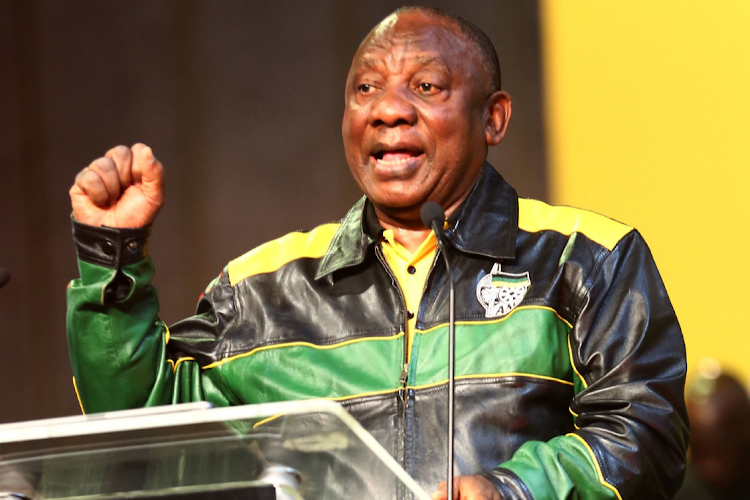The past fortnight has been chaotic as the Phala Phala storm brewed over South Africa. We once again found ourselves at an important point in this country’s history, again at the mercy of a party riddled with corruption and infighting, as the ANC gathers at Nasrec.
This week, five MPs – including Nkosazana Dlamini-Zuma and Supra Mahumapelo – from the African National Congress (ANC) were brave enough to vote for the adoption of the Section 89 report that found President Cyril Ramaphosa may have a case to answer for the robbery at his Limpopo farm. But the party, which had resolved to vote against it in Parliament, obviously would not let it pass.
SMread: ‘Hands off Ramaphosa’: Supporters rally around the president in divisive scaandal
Not long after the vote, the ANC’s acting secretary-general Paul Mashatile declared the party’s response to the quintet’s defiance. Said he, “It was very wrong for those comrades not to go with the party line because we discussed it. All those who did not vote with the party line will be referred to the disciplinary processes of the ANC”.
Mashatile then went on to say, “We are going to get out of that conference united”. This is where one begins to wonder whether the ANC has any grips with reality or if denial is a failing attempt at self-preservation.
Five years ago, almost exactly to the date, Ramaphosa narrowly defeated NDZ at Nasrec after five years as deputy president. His campaign was one of unity and corruption eradication. It appears he failed on both accounts.
It was already clear when the party went to Nasrec in 2017 that it was disunited. The battle lines were clearly drawn between the pro-CR17 (Ramaphosa) camp and the Radical Economic Transformation (RET) faction, the latter of which was in support of NDZ. Ultimately, the CR17 backers defeated the RET camp, but a protracted factional battle continues five years later.
His victory washed a wave of optimism across South Africans. Senior ANC members, well-aware that elections were around the corner, may have breathed a sigh of relief and laid their hopes in Ramaphosa to carry them through the 2019 elections.
In the years following the defeat, hints of a purge may be identified. For example, the likes of Ace Magashule were suspended. And most recently Carl Niehaus was expelled. Yet this speaks to further division rather than any progress in uniting the party.
This extended beyond the confines of the party itself and into its deployment to governmental positions. What we witnessed in Ramaphosa’s cabinet reshuffles was the mere realignment of allies to secure his own position. Thus, it can be deduced his actions, though they may have been well-intended considering the broader picture, did not unite a divided government and served only to deepen it by aggravating opponents and protecting his interests.
It is incredibly ironic to find that Ramaphosa has shown haste in eliminating foes whenever necessary. But the dark clouds that hover above his own head, from allegations of corruption in his 2017 campaign to the latest, the Phala Phala report, are hardly compelling enough to get him to do the right thing.
For Mashatile to stand up and say the party will emerge ‘united’ post-Nasrec 2022 sorely lacks any touch with reality. It is either a poor attempt at pretending all is well or he fails to grasp the canyons and rifts tearing the party asunder from within.
Perhaps from within party ranks there exists an illusion – especially from within the belly of the pro-Ramaphosa faction itself – of progress in achieving its goals of unity. Speaking to those gathered at a gala dinner on the eve of the 55th conference, Ramaphosa claimed to have made inroads in achieving unity within the party – all in the face of glaring divisions and increasingly disgruntled members.
One could argue Ramaphosa won in 2017 because he really did have a majority backing and thus other factions are marginal, but such an approach from a party member is dangerous and provides a false sense of superiority over any other faction.
As some have suggested, to say such a viewpoint as Mashatile’s is out of touch with reality might be incorrect, owing to the intimate knowledge of the internal dynamics that one has while working on the inside. My response here is that it is precisely those internal dynamics that could blindfold them.
Belonging to a certain faction draws on an aspect of human nature that sways one to hold tight notions of security and superiority. For Mashatile, with all his understanding of the inner workings of the party, he may as well be convinced it will emerge stronger and united. But this is simply because he might want to believe it to be the case considering where his loyalty lies. This may also be owing to the party politics and factionalism itself which blinds seniors from the reality at lower ranks.
It’s about time they stop being delusional and realise the party long ago pressed the self-destruct button, which can only be reversed with decisive action from a strong leader. A leader, now all the more scarce as the party heads to Nasrec for its 55th conference.
